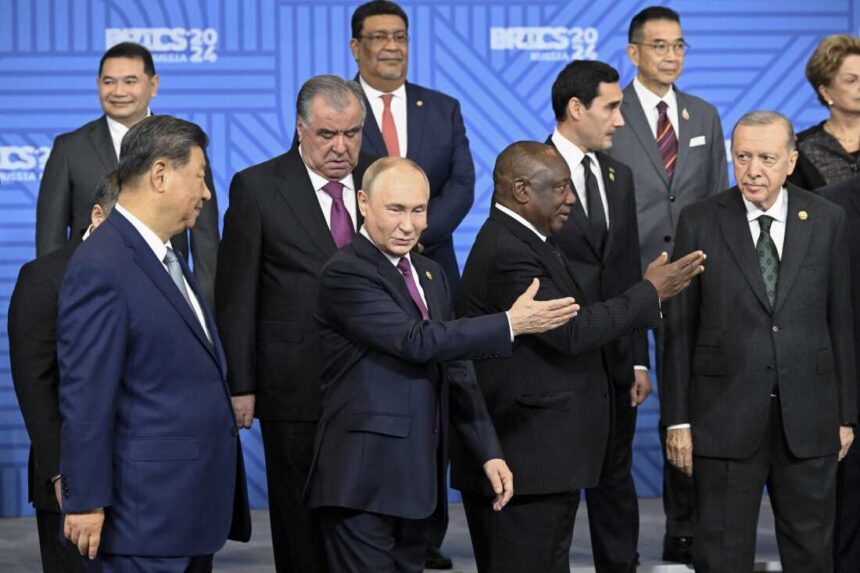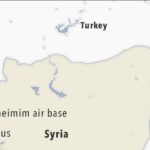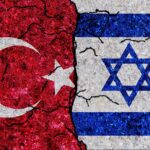In a defiant speech to his party’s parliamentary group today (March 9), President Recep Tayyip Erdoğan claimed that “Western powers have accepted the new Turkey,” arguing that the real problem lies with the domestic opposition, which he accused of failing to understand the country’s transformation.
Yet Erdoğan’s words are not just for domestic consumption — they reflect a geopolitical reality. The statement, delivered amid ongoing investigations and arrests targeting Istanbul’s opposition-led municipality, was not aimed solely at the CHP, its leader Özgür Özel, or Ekrem İmamoğlu. It was also a message to international audiences: Turkey’s autocratic turn is no longer a question of process — it is a fait accompli.
Despite years of democratic erosion — including mass arrests, media crackdowns, politicization of the judiciary, and the criminalization of dissent — Turkey remains firmly embedded in Western institutions. It is a key NATO member, a critical partner in EU migration policy, and an indispensable player in regional and global security dynamics. In practice, this means that Erdoğan’s transformation of Turkey into a one-man regime has not been met with serious consequences from his Western allies.
Public statements from European and North American officials often include the standard appeals to democracy and rule of law, but behind closed doors, relations with Ankara continue as usual. Military cooperation, arms deals, trade, and intelligence-sharing remain largely untouched. The message is unmistakable: the strategic value of Turkey outweighs its democratic deficit.
When Erdoğan says the West has “accepted” the new Turkey, it is not an exaggeration. What he calls acceptance is, in reality, a combination of geopolitical pragmatism and political fatigue. After years of confrontations and failed attempts to pressure Ankara, many Western capitals have shifted to managing Erdoğan rather than challenging him.
Nowhere is this more evident than in the growing military and security ties between Turkey and Europe. In a recent broadcast, France’s BFM TV Business channel spotlighted Turkey as NATO’s second-largest military power after the U.S., noting that Ankara’s defense industry is in “extraordinary” ascent”—with exports up 29% in 2024 alone. The channel openly posed the question: “Will European defense go through Ankara?”
This discussion comes as French President Emmanuel Macron initiates new security guarantees for Ukraine and NATO Secretary General privately urges European leaders to strengthen cooperation with Turkey. BFM cited reports that NATO leadership conveyed to EU heads of state that “Brussels and Ankara must work more closely on defense matters.” Once a vocal critic of Ankara, Macron now openly joins the chorus of Western leaders who have come to accept that Europe can no longer afford to alienate Turkey — freely declaring that “a European security without Turkey is unthinkable,” regardless of its democratic shortcomings.
Turkey’s strategic advantages — including its reduced dependence on foreign equipment (down from 70% to 30%), its combat-tested military, and its control of access to the Black Sea via the Turkish Straits — have made it an unavoidable partner. From the Bayraktar TB2 drones to its defense exports to over 180 countries, including Poland and Romania, Ankara is no longer simply a regional power — it is a pillar of Europe’s security architecture.
But Turkey’s influence extends far beyond weaponry and geography. It is also deeply embedded in linguistic, cultural, and religious ties that connect it to Turkic nations in Central Asia and the Caucasus, Muslim-majority countries in the Middle East, and former Ottoman lands in the Balkans. These connections have long given Ankara a unique soft power advantage, enabling it to project influence through education, religious institutions, cultural diplomacy, and economic ties.
Yet this potential has been dramatically undercut by Erdoğan’s domestic purge of the Gülen movement—once Turkey’s most effective soft/smart power vehicle abroad. Through its global network of schools, charities, and interfaith dialogue centers, the Gülen movement had established a far-reaching Turkish presence across Central Asia, Africa, and the Balkans. It represented what Joseph S. Nye famously termed “smart power” — the strategic combination of hard and soft power—to achieve foreign policy goals.
By dismantling the movement, branding it a ‘terrorist’ group after the 2016 staged coup attempt, and pressuring dozens of governments to close Gülen-affiliated schools, Erdoğan severely weakened Turkey’s moral and intellectual influence abroad. The closure of these institutions, which had cultivated generations of pro-Turkey elites across regions vital to Turkish diplomacy, represents a profound strategic loss — one that no number of drones or defense contracts can fully compensate for.
In place of globally respected educators and civic actors, Turkey’s image abroad has been increasingly shaped by coercion, transactional diplomacy, and security partnerships. It remains powerful — but no longer inspirational.
While European leaders may quietly adjust to this reality, some openly embrace it. Former U.S. President Donald Trump, during a recent White House meeting with Israeli Prime Minister Benjamin Netanyahu, once again showcased his admiration for Erdoğan, calling him “very smart” and offering to mediate tensions between Israel and Turkey. Trump, known for his affinity for authoritarian leaders, dismissed concerns about Turkey’s destabilizing role in Syria, instead crediting Erdoğan with helping contain the aftermath of the Assad regime’s collapse.
“I have a very, very good relationship with Turkey and with their leader,” Trump said. “I happen to like him, and he likes me … we’ve never had a problem.” He then turned to Netanyahu and added, “If you have a problem with Turkey, I really think you’re going to be able to work it out.”
And in a line that summed up the transactional nature of Trump’s diplomacy, he quipped:
“Any problem that you have with Turkey, I think I can solve. I mean, as long as you’re reasonable, you have to be reasonable. We have to be reasonable.”
It was an offhand comment — but a telling one. In the era of strongmen, “reasonableness” is no longer about human rights or democracy. It’s about pragmatism, personal rapport, and power. Trump’s words reinforce what Erdoğan already knows: the cost of autocracy is low, so long as you remain strategically useful.
Trump’s comments are more than personal admiration — they signal the continuation of a trend: Western leaders — whether through diplomacy, military partnerships, or sheer realpolitik — have adapted to Erdoğan’s authoritarianism. The Turkish president is no longer treated as a problematic democrat-in-decline. He is treated as a statesman.
When Erdoğan boasts that “Turkey is not a country that receives permission, but one that others seek permission from,” it is not mere bravado. It is a reflection of Turkey’s position as both a geopolitical gatekeeper and an authoritarian regime normalized by its allies.
Meanwhile, the Turkish opposition remains boxed in — vilified at home, ignored abroad. Following the politically charged detentions of young protesters who opposed the government’s March 19 intervention in Istanbul’s local governance, Erdoğan blamed the CHP itself, saying, “If their lives are ruined, it is you who ruined them.” The escalation of such rhetoric, paired with criminal proceedings and secret witness testimonies, underscores a deeper authoritarian logic now baked into Turkish political life.
The democratic West continues to engage Turkey as a partner, but Erdoğan sees in that engagement something more: not a reluctant compromise but confirmation. And with each passing day, that perception is increasingly difficult to dispute.
By: News About Turkey (NAT) & Geopolist | Istanbul Center for Geopolitics







